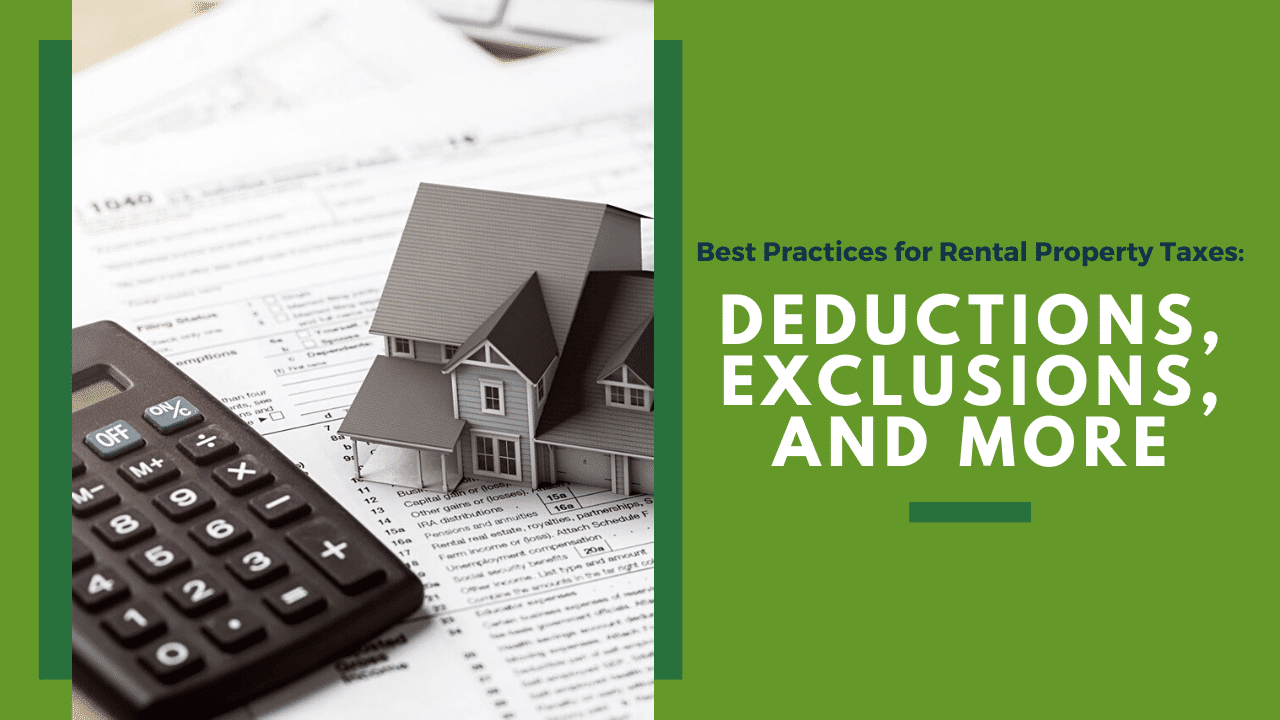
When you’re preparing to buy an investment home and estimating your rental property expenses, you also need to consider the tax benefits that come with that investment.
The IRS requires that all of your rental income is reported when you file your taxes. You can also deduct several associated expenses from that income, putting you in a good position to reduce a lot of your tax liability. Make sure you consult with a CPA or a tax accountant before you file to make sure that you’re operating within the IRS framework and taking advantage of every tax benefit.
Deduct Interest on Your Mortgage
If you purchased your investment property with a home loan, you can deduct the interest you pay on your mortgage. Check your monthly mortgage statement to see how much interest you’re paying. You’ll want to deduct the annual amount on your tax return.
In addition to mortgage interest, you can also deduct many of the expenses that come with procuring a mortgage. These include:
- Origination fees
- Points used to purchase or refinance your rental property
- Interest on unsecured loans used for improvements
- Credit card interest for purchases related to your rental property
You will need to document that you already spent the money on these things in order to use them as deductions.
Deduct Rental Property Maintenance and Repair Costs
The IRS allows rental property owners to deduct some repair and maintenance costs. The maintenance costs will qualify if you’re spending money to keep your property in rentable and habitable condition. Repairs that are made to improve the value of your property will be excluded.
If you hire someone else to do the repair work, you can deduct those labor costs. However, if you decide to do the work yourself, you can only deduct what you spent on materials, tools, and equipment.
Deduct for Property Taxes and Insurance Premiums
Property taxes aren’t cheap, and luckily, you can deduct them when you’re paying taxes on a home you’re renting out to tenants.
Deduct your landlord insurance premiums as well. Most lenders will require that you purchase insurance before you qualify for a mortgage and close on the purchase. Your basic dwelling coverage can be deducted as well as liability and special peril premiums.
Depreciation Deductions and Your Rental Property
 The IRS understands that wear and tear will eventually lower the value of your rental property, therefore the depreciation of that asset is tax deductible. The deduction can be taken for the expected life of the property, but it must be spread out over multiple years.
The IRS understands that wear and tear will eventually lower the value of your rental property, therefore the depreciation of that asset is tax deductible. The deduction can be taken for the expected life of the property, but it must be spread out over multiple years.
Currently, the IRS has set that at 27.5 years. So, you’ll use that number to calculate your depreciation. You cannot include the value of the land your property is on; you’re simply using the value of your house. Divide the cost of your property at the time you acquired it as a rental by 27.5. That’s the amount of depreciation you can include in your tax return.
These are a few of the deductions you can take when you’re estimating your rental property taxes. Your professional property management fees are also deductible, which means our services practically pay for themselves. If you’d like some help understanding what these tax benefits mean for your specific investment, please contact us at Action Properties.
